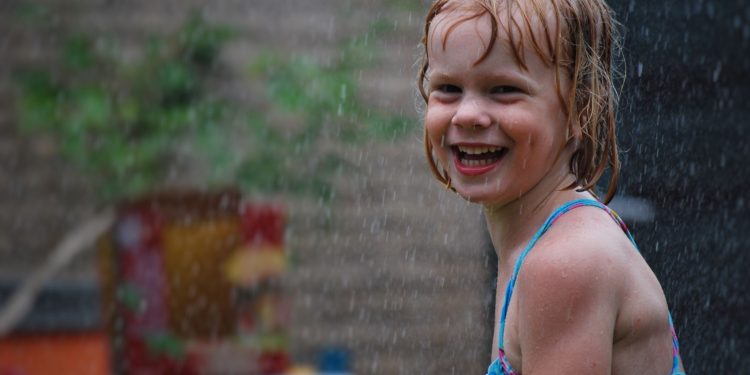Rainwater is often celebrated as a natural remedy for various hair issues, from enhancing hair growth to improving texture. This pure form of water, free from the chemicals and additives commonly found in tap water, is believed to be gentler on the scalp and hair.
But how much of this belief holds true? This blog delves into the composition of rainwater, its potential benefits for hair, and the precautions necessary to ensure it’s safe for use. Dive in as we uncover the real impact of rainwater on your hair’s health and vitality.
The Composition of Rainwater
Rainwater is pure water, free from the additives and chemicals often found in tap water. It lacks chlorine, fluoride, and other minerals that are typically added to municipal water supplies. This purity is what many believe makes rainwater beneficial for hair. However, its actual effect on hair growth and health depends on several factors.
Benefits of Using Rainwater on Hair
Purity and Lack of Chemicals
- Belief: Rainwater lacks harsh chemicals like chlorine and fluoride, so it’s less likely to strip hair of its natural oils.
- Truth: The absence of these chemicals makes rainwater gentler on the scalp and hair, resulting in softer and shinier hair as natural oils are preserved.
Balanced pH Level
- Belief: Rainwater has a pH level closer to that of hair and scalp, promoting a healthy scalp environment.
- Truth: A balanced pH prevents the scalp from becoming too dry or oily , which is essential for healthy hair growth.
Soft Water
- Belief: Soft rainwater is better for hair as it doesn’t cause mineral build-up.
- Truth: Hard water minerals can lead to dry, brittle hair. Rainwater helps maintain natural texture and prevents dryness and breakage.
Scientific Perspective on Hair Growth
While there is anecdotal evidence supporting the use of rainwater for hair growth, scientific studies specifically addressing this claim are limited. Hair growth is influenced by a variety of factors including genetics, diet, hormonal balance, and overall health. External factors like water quality can play a role, but they are not the sole determinants of hair growth.
Caution About the First Rain of the Season
While rainwater is often considered pure and beneficial for hair, caution is necessary, especially with the first rain of the season. The initial rainfall can bring down pollutants, dirt, and other contaminants that have accumulated in the atmosphere over time. This “first flush” of rainwater can contain higher levels of impurities that are harmful to your hair and scalp.
When hair is wet, it is more fragile and prone to breakage, so using the right tool is crucial to prevent damage. Proper care and the right tool can make a significant difference in maintaining healthy hair.
Precautions to Take
- Avoid Using First Rainwater: It’s best to avoid using the first rain of the season for washing your hair. Allow the initial rain to wash away atmospheric pollutants before collecting rainwater for personal use.
- Use Clean Collection Methods: Ensure that the containers you use to collect rainwater are clean and free from any debris or contaminants. Covered containers are ideal to prevent dirt and pollutants from entering the water.
- Filter the Water: Before using rainwater on your hair, filter it to remove any remaining impurities. Simple filtration systems or even a fine cloth can help make the water safer for use.
- Store Properly: Store collected rainwater in clean, sealed containers in a cool, dark place to prevent bacterial and algal growth. Use the water within a reasonable timeframe to maintain its purity.
Rainwater has the potential to be beneficial for hair due to its purity and lack of chemicals. However, the benefits largely depend on the quality of the rainwater and how it is collected and stored. While it may help maintain hair health and support a healthy scalp environment, there is no concrete scientific evidence to suggest that rainwater alone can significantly boost hair growth. On the other hand, improper use of rainwater can lead to scalp issues that may cause hair fall. Therefore, it is essential to take necessary precautions to ensure the rainwater you use is clean and safe.
For more information on maintaining hair health, visit A Health Place.









